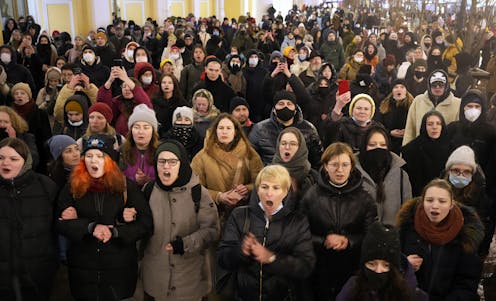
Russian dramatist Anton Chekhov famously advised young playwrights that “if in the first act you have hung a pistol on the wall, then in the following one it should be fired.”
For the past 20 years, Vladimir Putin — a deeply paranoid megalomaniac who has by now completely isolated himself from his own people, to say nothing of the world as a whole — has been progressively diverting Russia’s considerable wealth towards the construction of an all-encompassing security state.
Ever since the 2004 Beslan school massacre that provided the initial pretext for this redirection, the Russian president has been hanging pistols on the walls to the exclusion of any other national project. The massacre was an Islamist, mainly Ingush and Chechen terrorist attack that resulted in the deaths of 333 people, 186 of them children.
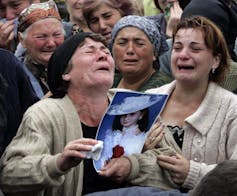
This narrow channelling of the country’s resources into security services has brought about a steady decline in living standards for ordinary citizens. Most of them aren’t fortunate enough to be employed in government ministries such as the MVD (Internal Affairs, which includes FBI-like functions), the security forces (the infamously unaccountable siloviki, including the Federal Security Service known as the FSB), the military, the police or connected to oligarch-run business networks with ties to Putin.
An FSB agent can expect to earn the ruble equivalent of US$1,100 a month and a police officer about US$600-700 monthly, in addition to benefits such as housing assistance, free university education for family members and free or heavily discounted vacations.
Best paid jobs out of reach for most
A surgeon, meanwhile, might make US$200-300 per month by working multiple jobs, while a teacher will have to struggle by on a measly $100 or less. Salaries for office workers fall somewhere in between. Generally speaking, any position worth having can only be obtained through nepotism, patronage networks or bribery.
In Russia’s paternalistic society, a man with the requisite skills can sometimes find employment as a car mechanic or construction worker. Low-paying unskilled jobs include food services, private security and retail sales. Those who own cars often work as unofficial taxi drivers.
Some men, unable to find employment, try to survive by betting on sports events. Others rely on the financial support of their wives or girlfriends — if they have them — who bring in money by working in beauty salons or engaging in informal businesses such as buying and selling clothes, cosmetics or household products.
But without the necessary connections and a willingness to participate in corrupt, often criminal activities, it is becoming increasingly difficult if not impossible for the average Russian to lead anything resembling a normal life.
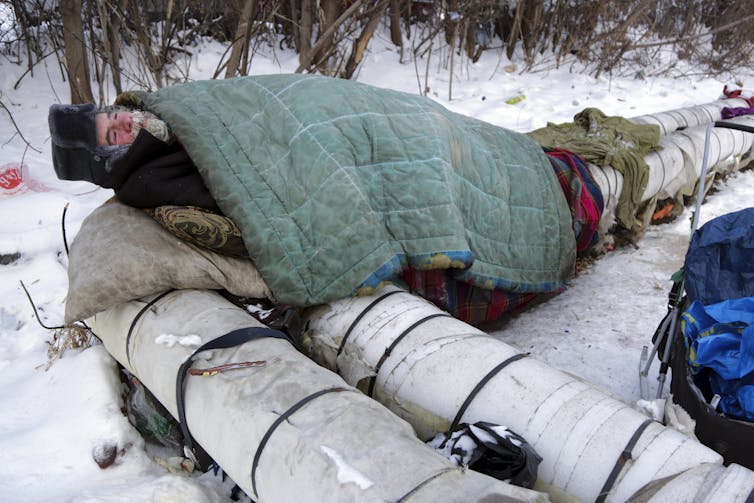
Cost of living
The cost of living in Russia — outside of Moscow and St. Petersburg, world-class cities that are priced accordingly — is slightly less than in the West, but not by much. And given the much higher salaries in those aforementioned cities, the nationwide average of US$660 per month should be adjusted considerably downward for most regions.
As the ruble plummets, the cost of living goes up but salaries do not. Pensions barely cover the cost of monthly utilities. Social assistance, including bonuses for health-care workers exhausted by the COVID-19 pandemic, gets diverted along the way into mysterious pockets without ever reaching those in need. Health-care services are being steadily reduced and hospitals closed in the interest of “maximizing efficiency.”
Putin constantly claims to be “operating within the framework of the law,” but the legal system in Russia is manipulated for the sole purpose of supporting and protecting the powerful.
Russia is an advanced, highly educated nation rich in both human and natural resources, giving it considerable economic potential. But its leadership has chosen not to invest that wealth in the development of the country but rather in the build-up of a massive security apparatus that serves only the interests of the president and those close to him.
The Russian state is a kleptocracy in the purest sense of the term, and for years its kleptocrats and the billions they’ve looted from the Russian people have been received with open arms by western countries such as the United Kingdom and the United States.
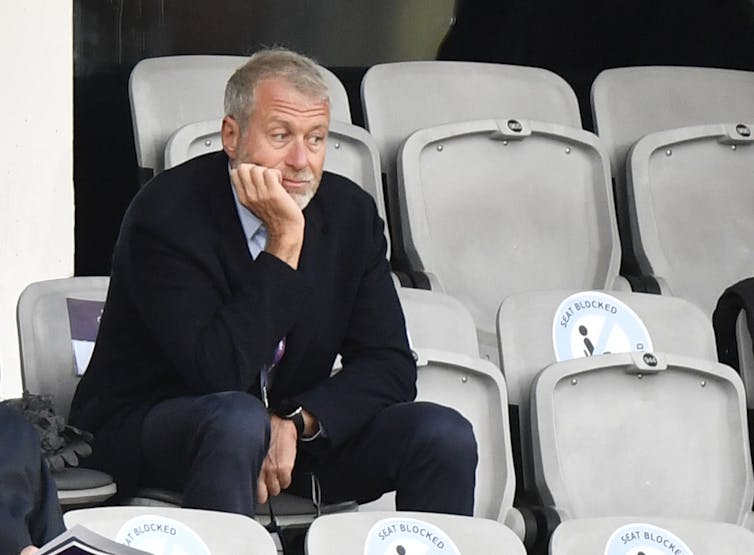
Ordinary Russians have no agency
Ordinary Russians had no say in the decision to launch an invasion of Ukraine, which was the longstanding personal obsession of a president most Russians don’t support but aren’t free to oppose.
Teenage conscripts, told they were being sent to participate in “exercises,” have reportedly been shocked to find themselves on the front lines of a war facing people they never considered their enemy.
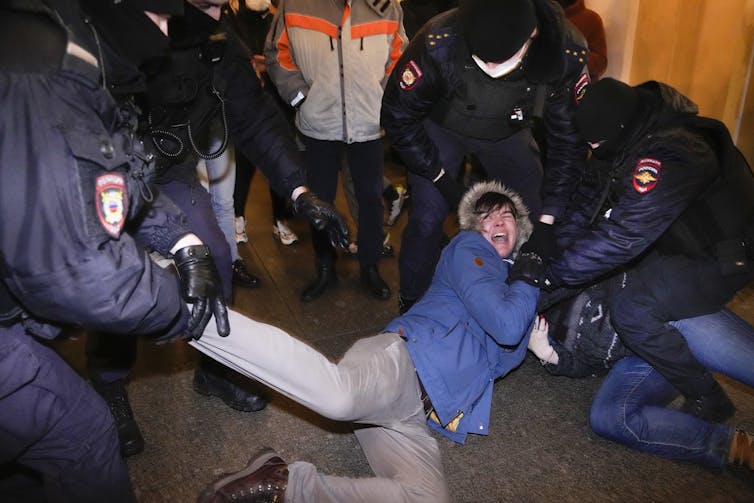
As our leaders wring their hands and bemoan the Ukrainians’ fate, they should also take a good look at their own roles in enabling Putin and his circle to build up the war machine that has only too naturally unleashed itself on the nearest and most convenient victim.
The pistols could not hang indefinitely, and now they have been taken down and are being fired at thousands of innocent victims.
Richard Foltz does not work for, consult, own shares in or receive funding from any company or organisation that would benefit from this article, and has disclosed no relevant affiliations beyond their academic appointment.
This article was originally published on The Conversation. Read the original article.







